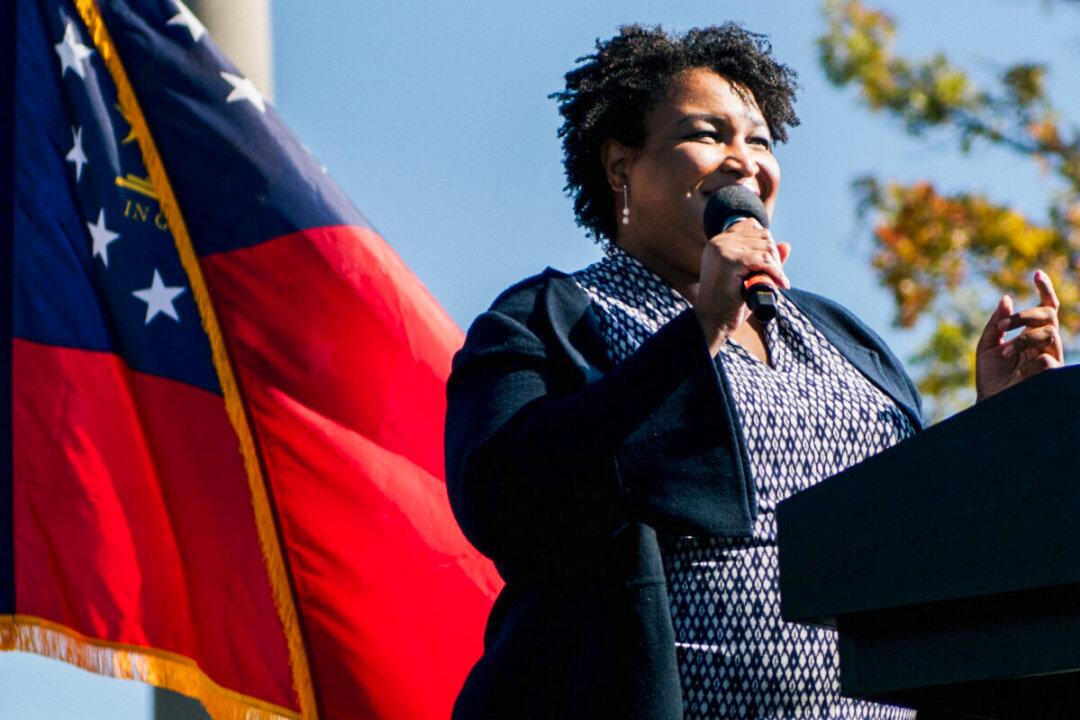Campaigning for governor outside Atlanta on Sunday, Stacey Abrams lambasted her opponent, incumbent Gov. Brian Kemp.
She charged he sits on huge surpluses and federal grants rather than spending it to ease problems like low teacher pay and ailing hospitals. She accused him of doing it while giving sweetheart deals to his friends. She railed against him running ads in which he pointed a shotgun “at a child” and said “he was going to round up people in trucks.”





